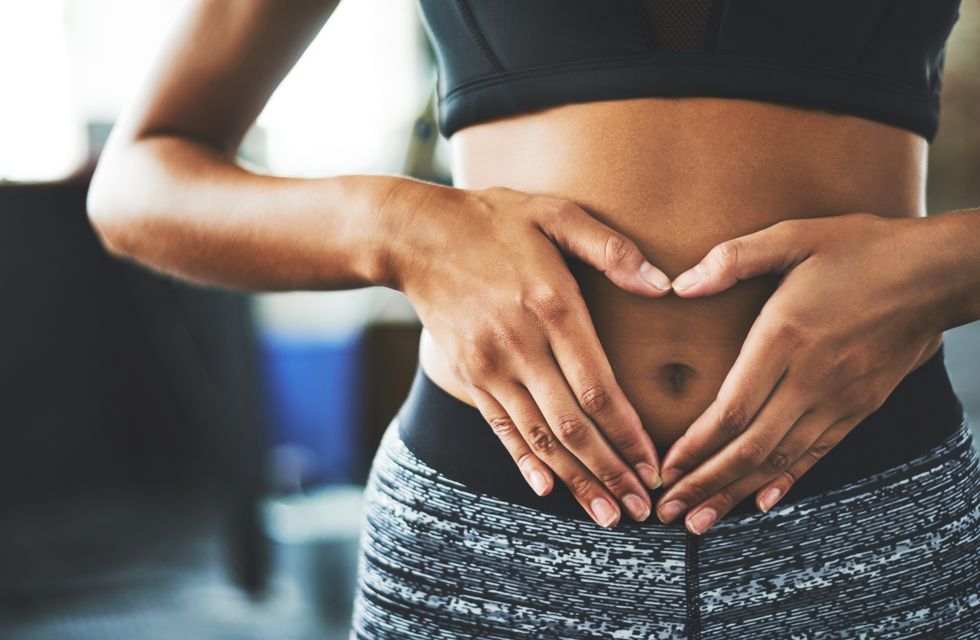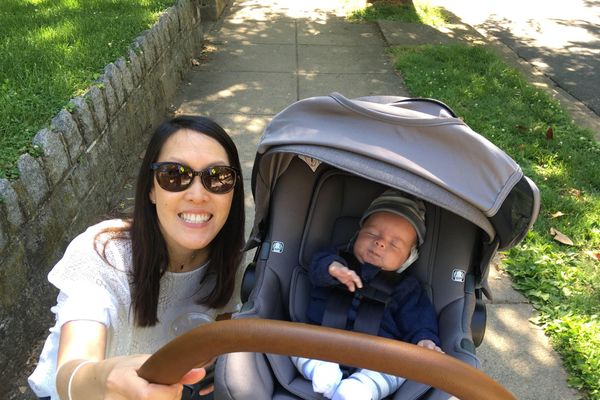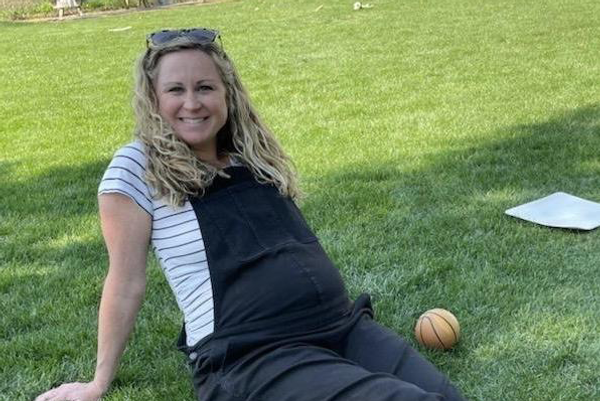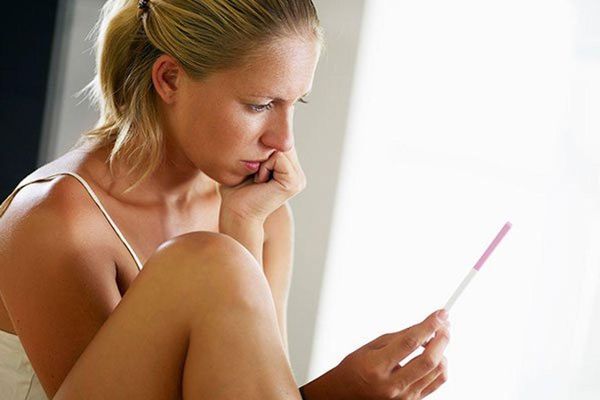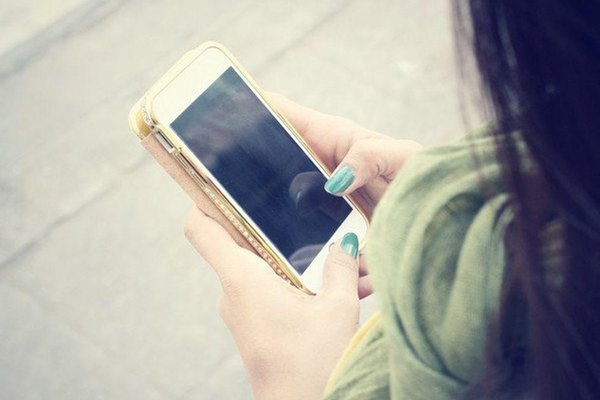By Lola Banjo
To many, matters regarding fertility and reproductive health are highly personal. People tend to be less open about their experiences, sometimes even with other family members. Minority women, especially, feel ashamed to undergo treatments like egg freezing for fear of being judged.
But seeking out assisted reproductive technologies, whether for social or health reasons, is nothing to be ashamed about. It simply means women are now more aware of all the options that science has created to make it possible to have a chance of becoming a mother.
While my reason for freezing my eggs was a social one, the pervasiveness of the stigma meant that when I was researching the process, it was hard to find women within my social sphere who had been open about freezing their eggs or were willing to discuss their experience.
This hesitation to share can cause feelings of isolation, as we are unaware that there are many other women experiencing similar things. Michelle Obama recently alluded to this in her book where she discusses her in vitro fertilization (IVF) journey and having a miscarriage. She recalls feeling like a failure, ashamed and lonely, until she realized she was not alone.
Here is my own story.
From a young age, having children has been one of my greatest life goals. While many girls dreamed of their wedding day, I'd fast forward to becoming a mother. By high school, I even had names picked out—but I first wanted to have a career, gain financial independence and a find suitable partner to raise children with.
At 28, I was well on my way. I had just graduated from a top MBA program, started my career at a top consulting firm and was newly engaged to a man I thought was the love of my life. The plan was to have my first kid at 30, shortly after we married, my second at 32, and my third at 34.
But then my relationship ended, and I was so devastated and heartbroken that I swore off relationships for the next three years to protect myself from another heartbreak.
When I was ready to date again, I had a moment of panic. I could no longer ward off the not-so-gentle nudges from my family that it was time to start a family. The pressure was so intense that even though I was thriving in other aspects, I felt like a failure because I was starting over and not close to being married.
I began to put a lot of pressure on myself to make every relationship work out because time was ticking. It became an up-and-down rollercoaster of finally liking someone, emotionally investing in our relationship, then realizing we were not a great match and having to go back to the drawing board. I no longer enjoyed dating—it felt more like a draining task that needed to be done. I'd wonder if every guy sitting across the table from me on a first date could potentially become my husband and the father of my children.
I knew I needed to re-center. I wanted to date (and have fun doing so), take the time to properly get to know someone and let the relationship blossom without the pressure of stressing about the future. I didn't want to compromise on finding "the one," but knowing my fertility wouldn't necessarily "wait," when my ob-gyn brought up the idea of egg freezing, I knew she was right. In July, I started the process.
What I Learned About Egg Freezing—and In Vitro Fertilization
Technically, a woman can naturally conceive until she reaches menopause, but it becomes harder with time. What egg freezing attempts to do is freeze time—that is, preserve a woman's eggs when they are of higher quality.
Here are some lessons I learned from for my egg freezing procedure:
- Freezing your eggs won't guarantee a baby. While the success rate has been improving, outcomes will vary depending on age, genetics, reproductive history and other lifestyle factors.
- The initial tests are very important. After the first consultation, you will go through testing of your fertility factors, reproductive health, STI (sexually transmitted infections) status and genetics. You should not make assumptions about your fertility prospects until you complete this step, as the results will help you and your doctor assess if you should continue with the process.
- Freezing your eggs won't deplete your egg supply. I learned that my normal reproductive cycle wouldn't be affected because only the eggs that would be "lost" anyway through the natural process would be captured.
- Do it when you feel most comfortable, but the earlier the better. On average, 25-year-old eggs are better than 30-year-old eggs and 30-year-old eggs are better than 35-year-old eggs. Wondering the best time to freeze your eggs? The general rule is now.
- Egg retrieval is the first part of IVF. In a full in vitro fertilization cycle, after the oocytes are retrieved, sperm is used to create an embryo in vitro, and then the embryo is implanted. I learned that when I froze my eggs, I would conclude the second half of the IVF process when I was ready to use my eggs.
- It is not a quick process. Durations vary, but it took about three months from the time I had my initial tests to the time I had the retrieval surgery. While the injections themselves last 10 to 12 days, some tests leading up to it can only be done at certain times of the month.
- Injections, injections, injections. I almost changed my mind when I realized how many needles were involved because I am terrified of them. There are frequent blood draws to test hormone levels and then every night, I injected myself thrice in my abdomen for 11 days.
- Not everyone in your life will understand your decision. If you are looking for unanimous support from friends and family, you might not get it, but that's OK. Trying to convince someone it is a good idea for you to freeze your eggs might be putting your energy toward the wrong thing. As long as you (and your doctor) know why you're doing it, that's good enough.
- Support is essential. If you are an independent woman, you may be inclined to think you could do this on your own, but it helps to have a support system, no matter how small. I was blessed to have the support of a couple of loved ones and having them to listen was invaluable. A great example was my best friend talking to me over FaceTime as I administered the injections the first day. I talked to her through tears, seriously doubting if I could do it, but she calmly cheered me on.
- Even with support, the egg freezing procedure can feel long, lonely and emotional. There is loneliness in the mere act of pricking yourself with needles every night and clinic visits every morning before the rooster crows. But also, due to the hormone injections, my estrogen levels were incredibly high, and I was very emotional. I felt proud about freezing my eggs, but I also felt some sadness about having to do it at all. I'd cry when I'd see a baby, even staying off social media to avoid it. My normal routine was also completely thrown off track. One particular tough morning, I got up at 4:30 a.m. to get to the clinic by 6 a.m., but it was so packed that I would not be seen till 7:30 a.m. I had an important 8 a.m. meeting with a one-hour-plus commute. I was so overwhelmed that as soon as I stepped into my car, I burst into tears. My weight was also out of control, and I lost all the definition in my abs as my ovaries expanded. I also had no desire to be social. I wanted to just stay home all day. But don't worry: This part only lasts for two mentally and physically exhausting weeks.
- You cannot travel for a period of time. Throughout the three months, I was only able to squeeze in a week of work travel. As someone who loves to travel, my inability to do so felt suffocating. You have to visit the clinic frequently for blood tests and ultrasounds; hence, the travel restriction.
- The egg retrieval is a surgical procedure. On retrieval day, I arrived at the clinic, received an IV, then proceeded to the operating room. I received a propofol-based anesthesia. Then the surgeon used an ultrasound probe through my vagina to retrieve the eggs. I didn't feel a thing. The surgery took less than 30 minutes, but I was there for three hours. Also, I couldn't drive, so I had someone accompany me.
- Plan for recovery time. I took about a month to feel fully back to normal again. After my surgery, I felt very bloated and had days of painful cramping. I was also nine pounds heavier, due to both the IV fluids and not being able to work out for weeks. After the surgery, I was advised to refrain from working out (or sex) for another one to two weeks.
- The number of eggs retrieved per cycle will vary. During each ultrasound, the number of follicles, which carry the eggs, are counted. Generally, the more follicles the better. However, not every follicle might contain an egg. In addition, some of the retrieved eggs might not be mature enough to be frozen.
- You may need more than one cycle. Doctors advise freezing six to 10 eggs per live birth desired because some eggs may not survive thawing and some will not successfully fertilize into an embryo. But you will likely be unable to know if you will need more than one cycle until your first cycle is complete.
In the end, every woman will have a different experience. So while it's good to share our stories, be careful about comparing them. Our bodies are different and two seemingly similar women could have drastically different experiences and results due to factors beyond their control.
When I'm ready to start a family, I hope to conceive naturally, but having my frozen eggs just in case makes me feel relieved, empowered and less pressured in my dating.
If you're also considering freezing your eggs, I commend you on making this important decision. What you are about to embark on won't be easy, but if all works well, it will be worth it. Though you might feel overwhelmed, you are not alone. You are strong and amazing. You can do it!
Lola Banjo is a corporate strategist and innovation executive with a passion for advancing women and underrepresented minorities. She has spent the majority of her career helping large organizations achieve strategic goals through a blend of analysis, partnering and creative problem solving and she uses the same thinking to ideate on tangible ways to address social issues. Her personal passion for and commitment to serving others has led her to her work as Board Director at Mouse.org, an organization that supports youth from underserved demographics via a technology education, and as a committee member of FACE Africa, an organization addressing water and sanitation issues in sub-Saharan Africa. She holds a B.S. in Materials Engineering w/ minors in Mathematics, Economics and Computer Science from Rutgers University, a M.S. in Financial Engineering and a Grad Certificate in Risk Management from New York University, and a MBA in Strategy, Finance and Decision Sciences from Emory University. She has also studied at top schools around the world including FGV Rio (Brazil), WHU Koblenz (Germany), RSM Erasmus (Netherlands), The London School of Economics and SDA Bocconi (Italy). She is an avid photographer and world traveler, having visited 100+ countries and counting.

